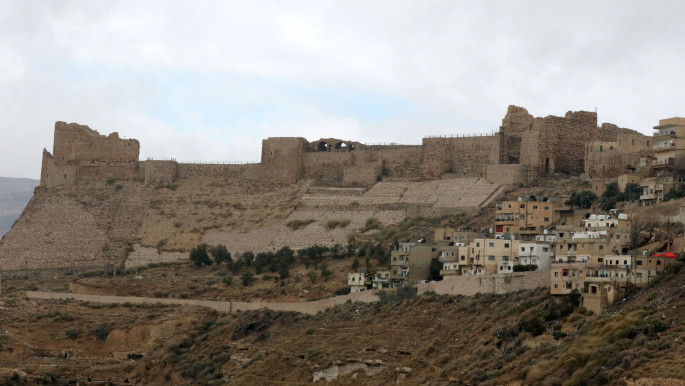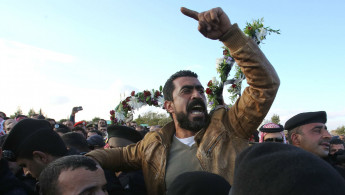Jordan witnesses a bloody week as IS threat heightens
Jordanian media reported that four members of the security services were shot dead by gunmen during an operation to root out a suspected IS militant cell in the Karak area.
Police were hunting down suspects involved in Sunday's bloody clashes between Jordanian security and gunmen.
The incident left nine police and one Canadian tourist dead, and left the largely peaceful kingdom in shock and mourning.
"The operation is ongoing but has entered its final stages and will end soon," government spokesperson Mohammed Momani said late Tuesday according to AFP.
Jordanian state news said at least one militant was killed and one arrested in the operation.
Bloody week
Police came under fire when they attempted to search a suspect's home. The man had reportedly admitted to being involved in Sunday's massacre but rushed through the door during an incident, Momani said.
"The suspect rushed inside his home and slammed the door behind him. He ran to the roof and started shooting, which led to the killing of one of the policeman," he said.
The other three were killed after more gunmen joined the suspect.
Jordan's King Abdullah was pictured in an ops room following up on the assault having visited injured officers earlier in the week.
On Tuesday, the Islamic State group claimed to have carried out Sunday's attack in Karak. Early indications had pointed to militants who were well-organised, armed and trained.
Although authorities have kept the nationalities of the suspected militants under wraps, social media has mentioned a Libyan among the dead in Sunday's attack but this is not confirmed.
According to Jordanian blog 7iber, at least one man connected to Sunday's attack was believed to have fought in Syria.
 |
| Karak witnessed more bloodshed on Tuesday [AFP] |
The week of violence was said to have started when Karak locals heard an explosion in the apartment of two of the suspects, 7iber said in a blogpost.
When security came to investigate and enter the flat, gunmen inside opened fire. The men then fled the scene in a pick-up changing the vehicle en-route to Karak's Crusader-era castle.
The gunmen then shot four security at the castle and a Canadian tourist before a battle with Jordanian police broke out.
Militancy
It appeared to be a well-organised, if ill-planned, assault by the well-armed men.
IS-linked Amaq news agency said that four "soldiers of the caliphate" led Sunday's attack armed with machine guns and hand grenades.
It did not say that the incident was sparked by an accident and only insisting that the militants targeted the "apostate" security forces.
Amaq also identified the four militants killed on Sunday and said it was carried out the assault in response to Jordan's participation in the war against IS in Iraq and Syria.
The group vowed more attacks on Jordan and its allies in the US-led coalition.
Karak was the hometown of Jordanian pilot Moaz al-Kassasbeh who was held captive by IS before being burned to death with his horrific murder filmed by the group.
The incident led to Jordan executing a woman involved in the 2005 hotel bombings in Amman by IS' precursor al-Qaeda in Iraq. Jordanian war planes carried out retaliatory air raids hours after the film was released.
IS also claimed responsibility for bomb attacks on Jordanian border guards which left seven dead in June.
Security forces also clashed with jihadi militants in the northern city of Idlib in March.
Jordan is home to at least 700,000 Syrian refugees and live mostly in two camps in the country's north including Zaatari.
Around 75,000 also live in dire conditions in a makeshift refuge on the kingdom's border with Syria called Rukban.
Amman has remained tense given the threat from IS militants and other extremist groups over the border, but has so-far avoided major incidents.
However, at least 4,000 Jordanians are believed to have joined jihadi groups in Iraq and Syria since the 2011, and the risk of armed, highly-trained and radicalised militants returning home has worried security services.



